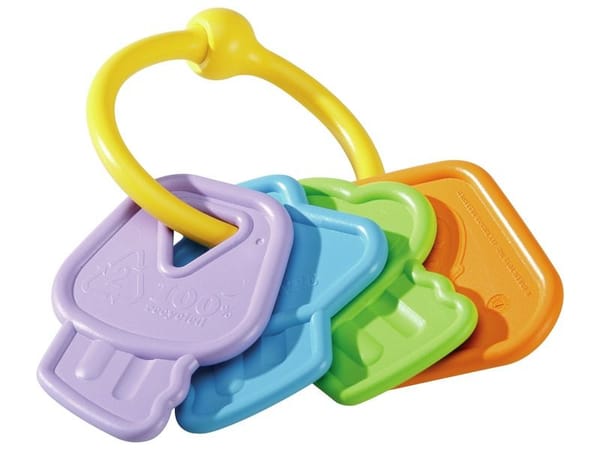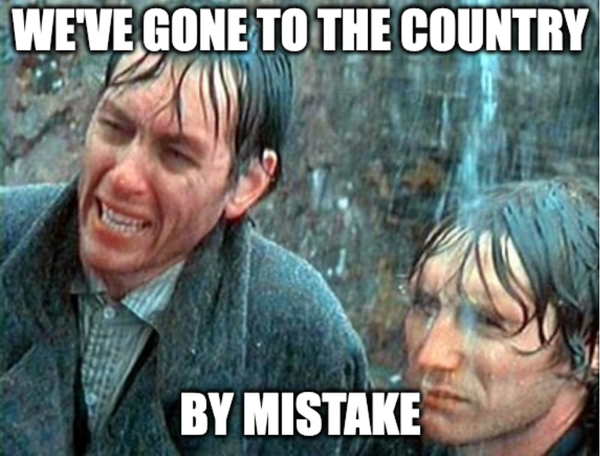The Gist: The Siege of Troy
Robert Troy’s greatest political legacy will be writing a paragraph that finally managed to crystallise what Fianna Fáil stands for in the mind of voters. This is the Gist.

It’s hard to get a handle on the story of Robert Troy. That isn’t because the story is too complex. It is almost the easiest political story you could come up with.
No, what makes it difficult to talk about is that it is so damn straightforward. At first glance, there seems almost nothing to add to a simple recitation of the facts.
But let us leave the specifics of Mr Troy’s property portfolio behind and consider the effect on the general public of hearing a TD announce he owns 11 homes and he makes no apologies for it, because he isn’t a person of privilege.
Many of them will own zero homes. Others will have friends or family in rented accommodation who move every year or so as the landlord turns his portfolio over by upping the rent or evicting, as Mr Troy argued in the Dáil should be allowed happen during the pandemic lockdowns.
Or maybe they own their house (via the bank) but remember paying rent to landlords who wanted it in cash.
In general, the general public doesn’t own 11 properties that other people pay to live in. That’s what makes us the general public, as opposed to the incredibly specific public.
But for TDs, being someone’s landlord is one of the most common things you or your peers can do. And into that fracture between the governed and their governors fell Robert Troy. He eventually produced his comedy list of errors and omissions, an errata slip published in response to a continuing series of critical reviews of The Minister for Regulation’s self-regulation, to get ahead of the story.
But the list of missed registrations and misunderstandings of plain rules was almost beside the point. He just didn’t seem to recognise that the glowing nuclear rod he had thrown into the still waters of the story was the news of his 11 part property empire. And once it landed, the waters just boiled.
By the time he issued his resignation statement, he knew it. We can only imagine that’s why he wrapped up his ministerial career with a paragraph which has buzzed ever since in the head of anyone who read it, like a wasp banging against the inside of our skulls
“I personally will not apologise for being a landlord. I bought my first house at the age of 20 as I went straight into a job after school, so I was in a position to purchase my first property then. I am not a person of privilege and I have not been brought up with a silver spoon in my mouth, I have worked for all I have"
Like a sort of Mandelbrot set of entitlement, any and every element of this paragraph we might zoom in on contains sufficient voter-maddening power to instantly end Ireland’s energy crisis.
Forget wind farms. Just tour the country and read this paragraph wherever people are gathered and you could capture enough rage to let us fuel an unbroken carpet of data centres from sea to shining sea.
Owning 11 places to live, a TD flipping properties bought from the state by selling them at a profit to the state, getting cash payments from tenants, arguing that you and other landlords should be able to evict tenants during the pandemic without mentioning you are a landlord, arguing that the state should pay landlords like you more rent without mentioning that you’d benefit- none of these are illegal. Robert Troy was not brought down by his regulatory errors and omissions. He was sunk by the behaviour that his peers in the political class found perfectly normal and the elctorate unfathomable.
That self-penned paragraph will be Robert Troy’s lasting political legacy. After years of Fianna Fáil worrying that the voters didn’t have a clear picture in their minds of the party’s identity, Mr Troy has laser etched one onto a sharp-edged steel plate and inserted it forcibly into voters' brains.
Fianna Fáil is that paragraph now. His leader backed him, praised him, embraced him. Now, they own him. And in a feat of extraordinary literary synthesis, he may well have written their electoral obituary even as he left office.



